-
Popular places to visit
Popular things to do
Helpful tips
Here's a few useful links to help with planning your trip to Aotearoa New Zealand.
-

New Zealand's mountain ranges, wild rivers and grassy fields provided the perfect setting for the Lord of the Rings movie trilogy. Here is where you can find Middle‑earth™ for yourself.
Whether or not you're a Tolkien fan, you'll find it almost impossible not to compare New Zealand to Middle‑earth™.
From the towering mountains and dreamy Hobbiton™ in the Shire, New Zealand's otherworldly landscapes brought the movies to life.
The Lord of the Rings trilogy was filmed entirely in New Zealand. Filming locations spanned more than 150 locations in both the North and the South Islands.
One of the most popular film locations in New Zealand is found in Matamata.
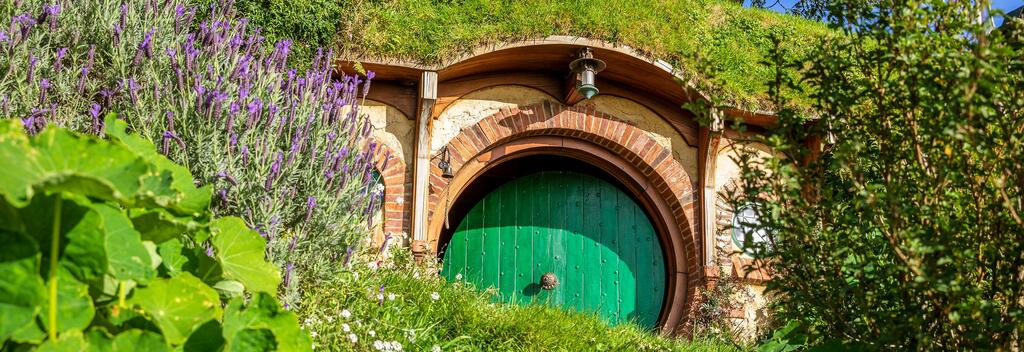

The lush dairy farming landscape around the Waikato town of Matamata was used to portray the peaceful Shire region of Middle‑earth™. The village of Hobbiton was created here with brilliant attention to detail.
It was later rebuilt for the filming of The Hobbit Trilogy and is now a permanent attraction.
See glorious 360-degree images of Hobbiton here.
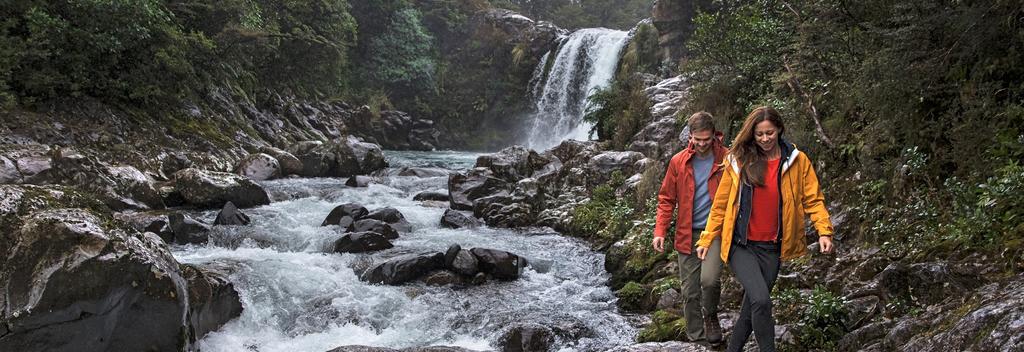

Tawhai Falls(opens in new window) in Tongariro National Park(opens in new window) was the location for the forbidden pool, where Frodo and Faramir capture Gollum in 'The Lord of the Rings: The Two Towers'. The falls can be reached via a short 10-minute walk, which begins roughly 4 km from Whakapapa Village.
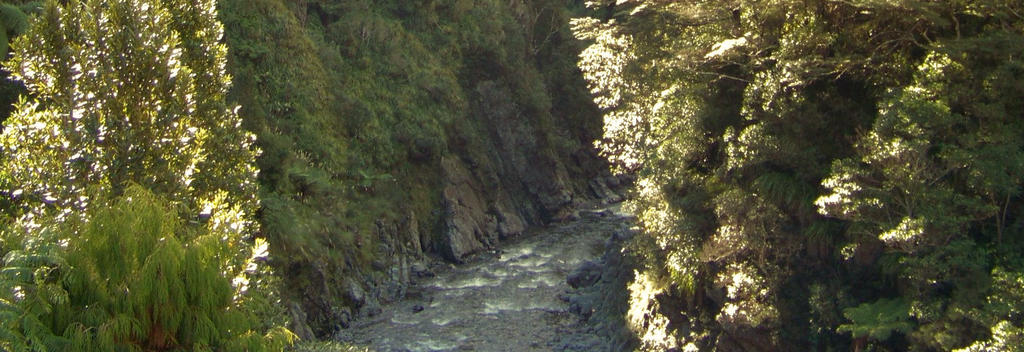

The most accessible filming location in Wellington is Mount Victoria, which is within walking distance of the central city. The forested areas of the mountain were used to depict Hobbiton Woods, where the hobbits hid from the black riders.
Other Wellington locations include the Hutt River between Moonshine and Tōtara Park, which played the part of the River Anduin; and Harcourt Park, which was transformed into the Gardens of Isengard.
Wellington’s Kaitoke Regional Park became Rivendell, where Frodo recovered from the knife attack. The exact location - a grassy area surrounded by native forest - is signposted from the carpark.
From Wellington, you can drive up the west coast to Queen Elizabeth Park near Paraparaumu, which was used for filming the Nazgul and mumakil in the Battle of the Pelennor Fields. Further up the coast is Waitarere Forest (Osgiliath Wood), where Frodo, Sam and Gollum walked after leaving Faramir.
A drive over the hills to the Wairarapa region will take you to the eerie Putangirua Pinnacles, where Aragorn, Legolas and Gimli sought the Paths of the Dead.
Wellington is also home to Wētā Workshop(opens in new window), Wētā Digital and the Miramar film empire which is central to The Hobbit Trilogy production. While the movie business centre is off-limits to visitors, The Lord of the Rings pilgrims can experience the Wētā Cave.
The sheer drama of the South Island's mountain ranges and wilderness areas means there are dozens of filming locations to visit that are stunning in their own right - even non-movie buffs will enjoy these.
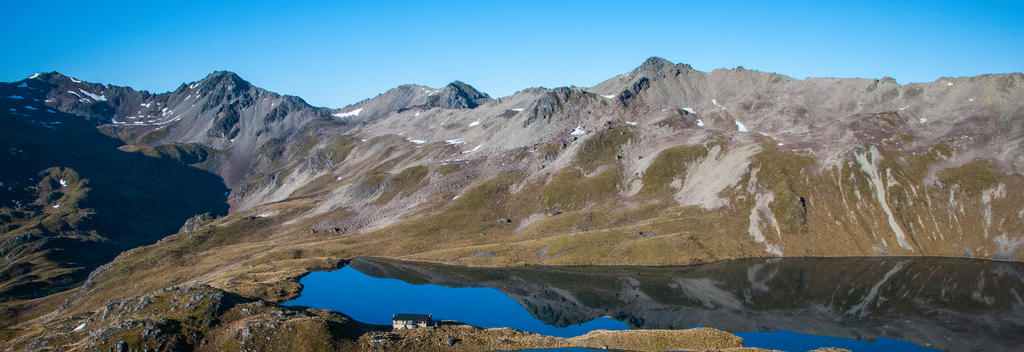

Nelson Tasman is home to Jens Hansen, the goldsmith responsible for creating the 40 different rings used in production. One of the original rings is on display and copies can be bought in 9 and 18ct gold.
From Nelson drive west over Tākaka Hill, which was the filming site for Chetwood Forest. Here the Ranger 'Strider' led the hobbits into the rough country east of Bree in an attempt to escape the Black Riders.
You'll need to catch a helicopter to see where the fellowship hid from Saruman's black crows. Ask the pilot to show you Dimrill Dale - Mount Olympus and Mount Owen. From the air, you'll get an eagle's view of the region's three national parks - Abel Tasman, Nelson Lakes and Kahurangi.
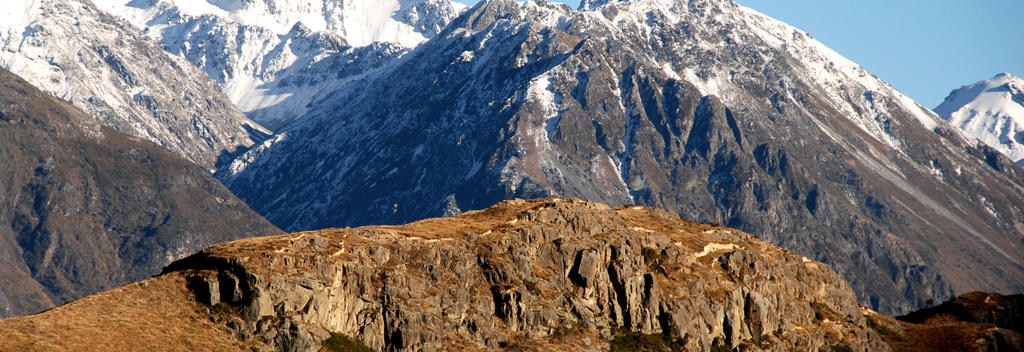

Nestled in the Ashburton District's high country sits Mount Sunday - a sheer-sided hill that was the set for Edoras, the main city of the Rohan people.
Nothing remains of this set, which took nine months to build, however the location still has powerful magic. You can park your vehicle on Hakatere Potts Road and walk to the site. Nearby, Mount Potts Station offers accommodation and a restaurant.
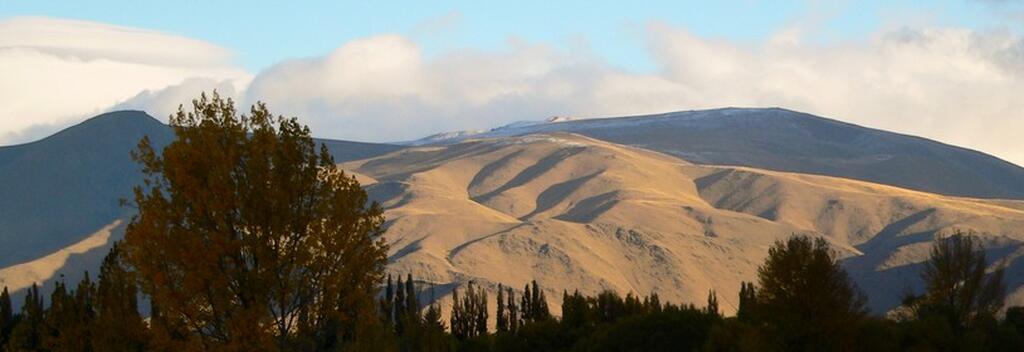

Near Twizel in the Mackenzie Country, Peter Jackson filmed the epic battle of the Pelennor Fields, where thousands of orcs bred by Sauron clashed with the men of Gondor and Rohan. The grassy fields that stretch to the foothills of the mountains look exactly as described in The Lord of the Rings Trilogy. The location is on private land, however you can arrange a tour in the town of Twizel.


From the village of Glenorchy, at the northern end of Lake Wakatipu, you can see the north-western slopes of Mount Earnslaw, which featured in the opening sequence of The Two Towers. From Glenorchy, you can also discover Lothlorien - the beech forest on the road to Paradise.
Another memorable location can be found near Queenstown at Arrowtown where you can walk to the Ford of Bruinen on the Arrow River; you can also walk to Wilcox Green, where the Gladden Fields scenes were filmed.
From Chard Farm winery you can see a spectacular view of the Anduin and Argonath (Pillar of Kings). The Pillars were computer-generated in the studio.
Drive over the Crown Range Road and you’ll find yourself in the Cardrona Valley. From here you can drive to the summit of the Crown Range for a panoramic view of Middle‑earth™. To the left are the River Anduin and the Pillars of the Argonath. In the hills straight ahead is the Dimrill Dale. In the distance is Amon Hen on the shore of Nen Hithoel.
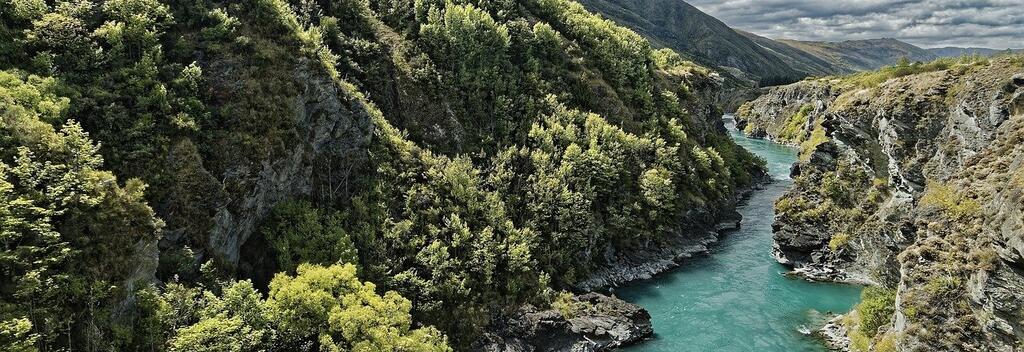

The Waiau River between Te Anau and Manapouri represented the River Anduin as the Fellowship paddled south from Lothlórien. The surrounding high peaks were used to depict the rough country south of Rivendell.
To discover Fangorn Forest, ask for directions to Takaro Road, which is near Te Anau. Both sides of the road were filmed as Fangorn Forest; remote cameras were strung from high wires to film the hobbits moving through the trees.